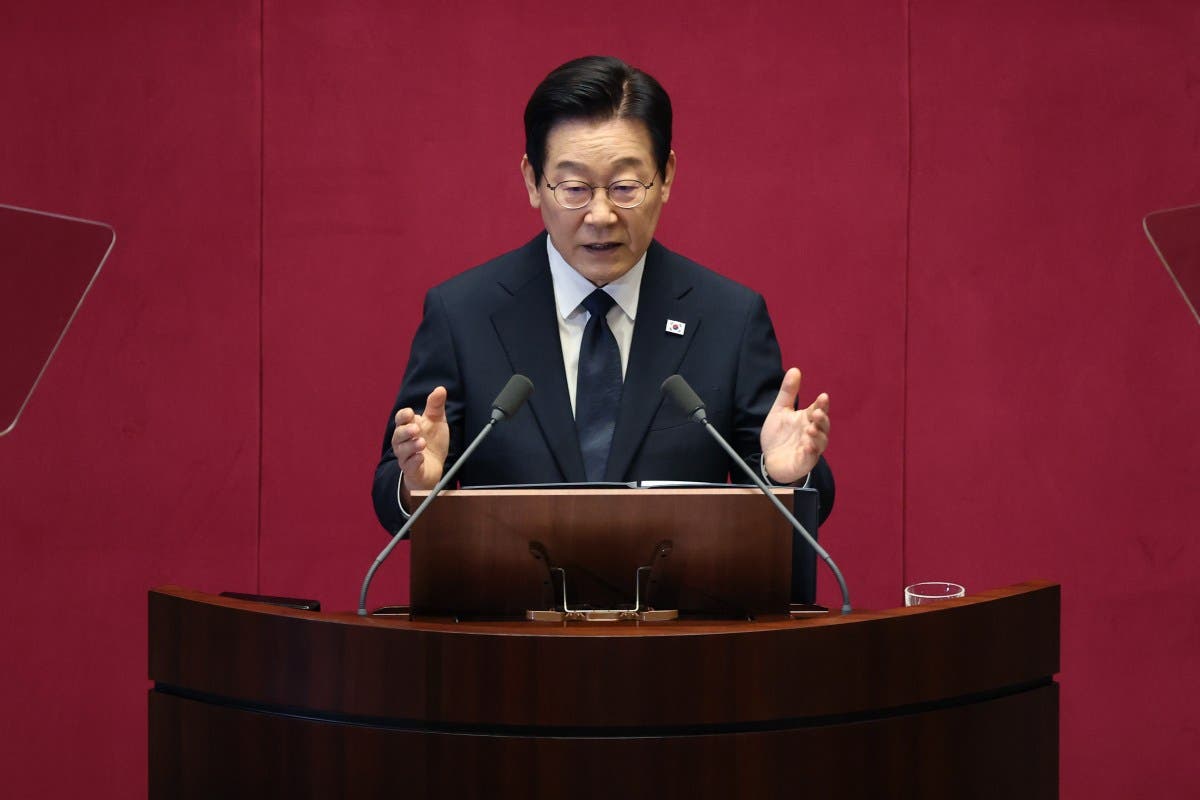Politics
South Korean Police Mobilized to Combat Online Hate Speech

South Korean President Lee Jae-myung has instructed police to take significant action against online hate speech, asserting that such behavior “crosses the boundary of freedom of expression.” This directive comes amidst rising anti-foreigner sentiment, particularly aimed at Chinese nationals, highlighted by large-scale protests in the lead-up to the Asia-Pacific Economic Cooperation summit in Busan last month.
The backdrop to this crackdown is notable. In 2022, the number of foreign residents in South Korea reached a record high of 2.58 million, accounting for approximately 5 percent of the population. The recent protests reflect mounting concerns over rapid demographic changes in a country that has long maintained a homogeneous society.
During a Cabinet meeting on March 15, 2024, Lee emphasized the urgency of addressing what he described as rampant hate speech and disinformation on social media platforms. He stated, “Acts such as distorting or manipulating facts, spreading racial hatred or discrimination — the circulation of such false information is an act that threatens democracy, and because it threatens the daily lives of our citizens, it must be regarded as a crime.”
Lee’s remarks extend to senior officials, as he assured that they would be held to the same standards as public officials regarding hate speech. This includes Ahn Chang-ho, the current chair of the National Human Rights Commission, who has faced backlash for anti-LGBTQ+ comments made during his confirmation hearing.
In a further move to reinforce this crackdown, Lee approved a proposal from Personnel Management Minister Choi Dong-suk to facilitate the immediate dismissal of civil servants engaged in hate speech. He stated that this rule should be adopted as soon as possible, according to the Korea Times.
The international response has also been notable. Dai Bing, the Chinese ambassador to South Korea, expressed concerns regarding the spread of anti-China disinformation and protests led by far-right groups. He stated, “Far-right forces in Korea are spreading disinformation about China and organizing anti-China protests, which not only damage the friendship between our two countries but also tarnish Korea’s national image.”
Looking ahead, South Korea remains one of the few members of the Organization for Economic Co-operation and Development (OECD) without a comprehensive anti-discrimination law. During the same Cabinet meeting, Lee expressed support for Justice Minister Jung Sung-ho’s initiative to foster parliamentary discussion on such legislation, which would draw inspiration from similar laws in Japan and Europe. Additionally, Lee advocated for the abolition of a clause in the country’s criminal defamation law that permits punishment for factual statements, arguing that such issues should be resolved in civil court rather than through criminal penalties.
As South Korea grapples with these complex issues, the government’s stance and actions may significantly shape the nation’s social landscape and its approach to diversity in the years to come.
-

 Top Stories1 week ago
Top Stories1 week agoPiper Rockelle Shatters Record with $2.3M First Day on OnlyFans
-

 Top Stories4 days ago
Top Stories4 days agoMeta’s 2026 AI Policy Sparks Outrage Over Privacy Concerns
-

 Top Stories1 week ago
Top Stories1 week agoUrgent Update: Denver Fire Forces Mass Evacuations, 100+ Firefighters Battling Blaze
-

 Top Stories1 week ago
Top Stories1 week agoOnlyFans Creator Lily Phillips Reconnects with Faith in Rebaptism
-

 Entertainment4 days ago
Entertainment4 days agoTom Brady Signals Disinterest in Alix Earle Over Privacy Concerns
-

 Top Stories5 days ago
Top Stories5 days agoOregon Pilot and Three Niece Die in Arizona Helicopter Crash
-

 Sports4 days ago
Sports4 days agoLeon Goretzka Considers Barcelona Move as Transfer Window Approaches
-

 Health2 months ago
Health2 months agoTerry Bradshaw Updates Fans on Health After Absence from FOX NFL Sunday
-

 Top Stories2 days ago
Top Stories2 days agoCBS Officially Renames Yellowstone Spin-off to Marshals
-

 World1 week ago
World1 week agoTragedy in Crans-Montana: Fire Claims Lives of Holiday Revelers
-

 Sports2 days ago
Sports2 days agoSouth Carolina Faces Arkansas in Key Women’s Basketball Clash
-

 Top Stories4 days ago
Top Stories4 days agoWarnock Joins Buddhist Monks on Urgent 2,300-Mile Peace Walk

